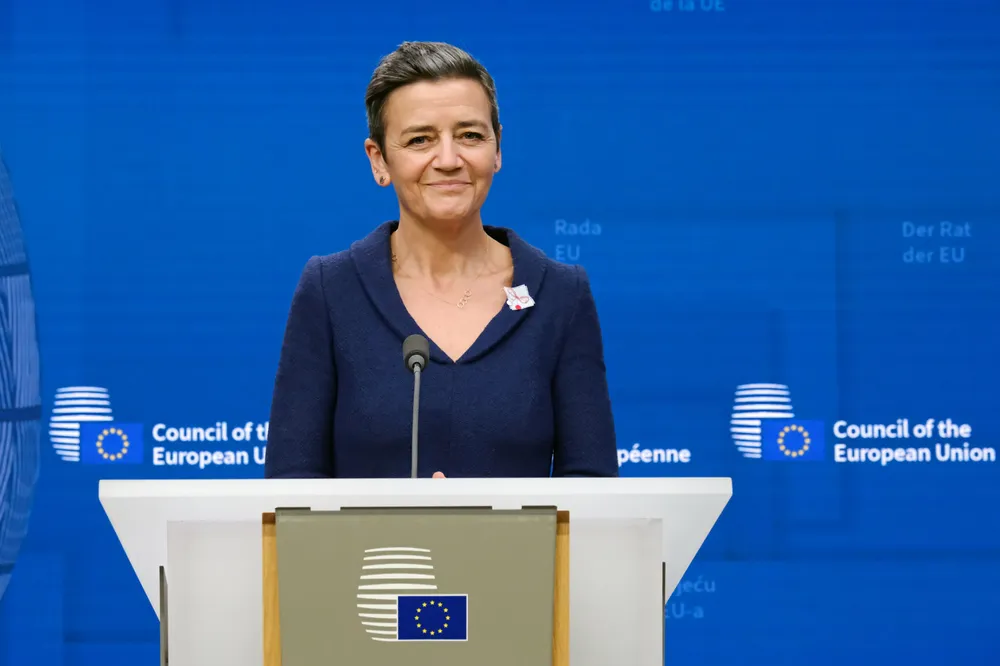EU probe 'looking ominous' for Chinese wind turbine makers after solar giants flee
But EU Commission's look into China's OEMs will be longer and more challenging than those seen so far, experts warn

The Foreign Subsidies Regulation (FSR) came into force last year and hands the EU Commission powers to tackle foreign subsidies distorting competition within its internal market.
Since the FSR became fully effective in October, the Commission has launched probes into Chinese solar, wind and rail manufacturers.
On Monday, the Commission reported that two Chinese solar panel manufacturers – Longi Green Energy Technology and state-owned Shanghai Electric Group – had dropped bids in a public tender to build a solar farm in Romania after it began investigating them.
That followed Chinese state-run rail giant CRRC pulling out of a €610m ($656m) tender in Bulgaria for electric trains after it came under scrutiny.
The FSR has already shown itself to be a “powerful tool,” said Ryan, “powerful enough that subsidised firms will fold in the face of an in-depth investigation.”
On the outcome of the rail and solar subsidies probes, Stijn de Jong, a competition law partner at Dutch firm Stibbe, believes there is “no reason to believe matters will be different for the wind sector.
“What we’ve seen from the FSR so far is looking ominous for Chinese wind turbine sector companies.”
Jumping before they're pushed?
One noteworthy feature of the probes the Commission launched into the Chinese rail and solar suppliers was just how quickly they caused the companies concerned to drop out of tenders.
The Commission has 18 months to investigate FSR breaches once it begins an in-depth probe. But Longi, Shanghai Electric and CRRC all apparently decided to jump before they were pushed little more than a month after the probes began.
There are various possible reasons for this, said de Jong. The Commission may have quickly found “genuinely problematic” subsidies, in which case it makes sense for the companies to save their time and money and quit before a formal decision was taken.
Having an FSR ruling against the company is after all “not a great look if you want to participate in other EU tenders.”
The companies may have also "tested the water" on measures they could take to undo the effects of the subsidies but were rebuffed by the Commission, he said.
It is also possible that the Commission was demanding more detailed information about foreign financial contributions the companies had received and they were unwilling to further “open the books.”
Wind probe tougher than ‘easy early wins’
While the outcome of the solar and rail probes has been quick and definitive, things will not be so easy for the Commission when it comes to wind, warns Ryan.
This is partly because in the cases that have been the subject of in-depth probes so far the companies concerned had “already provided information upfront for public tenders,” as the FSR requires.
That meant the Commission “could investigate them on the basis that the information disclosed on subsidies was not true.”
Here, the Commission will need to request information from a larger number of companies, across five countries, said Ryan.
“Data available on trade in components and subcomponents that may help in an investigation is not easily obtained,” he said, “if available at all.”
Christina Renner, a competition partner at Morgan Lewis & Bockius in Brussels, agrees that the exclusion of Chinese bidders from two markets has seen the EU rack up an “easy early win.”
“There is certainly pressure coming from these investigations that will have a chilling effect” on activities by companies uncomfortable about disclosing extensive information” about their relationship with a non-EU government, she said.
But the “real test of the rules” will be when a company decides to “fight its case on the merits.”
(Copyright)